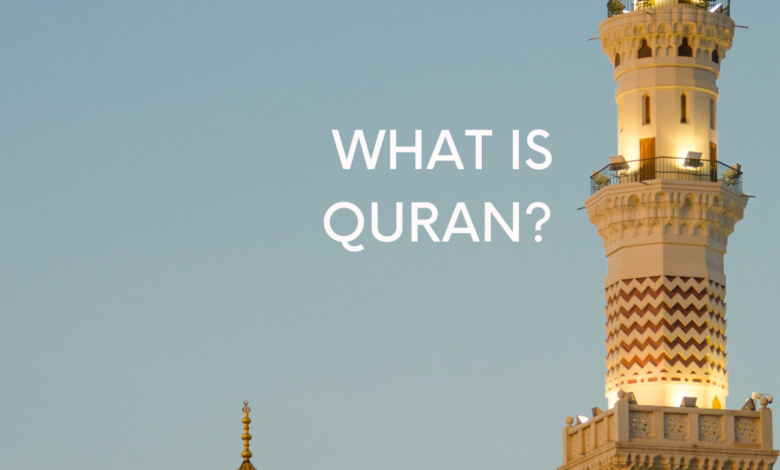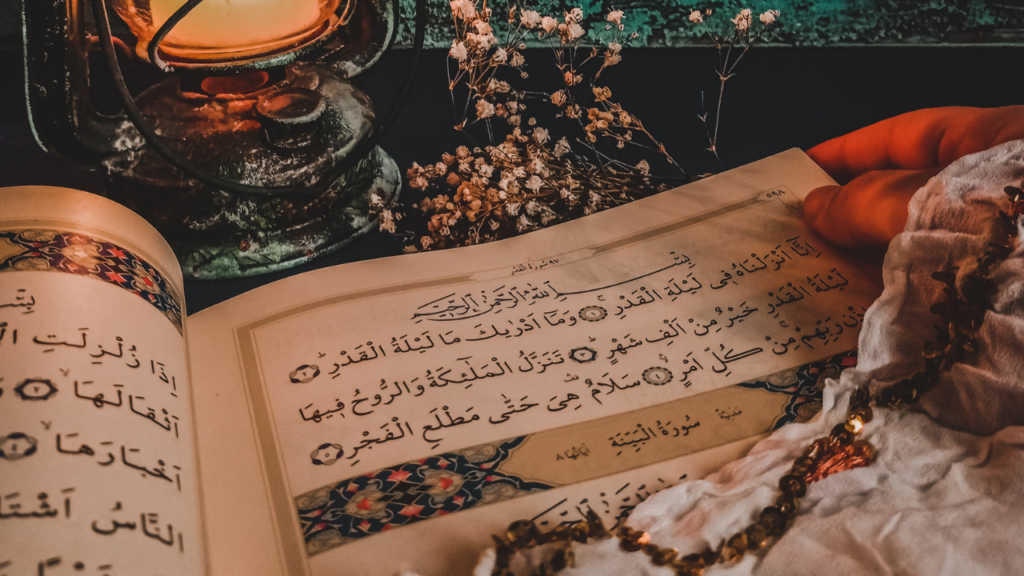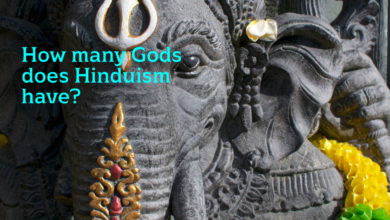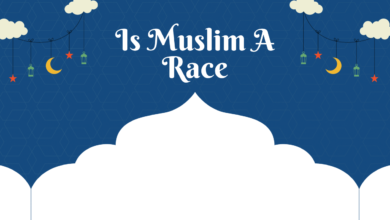
What is Quran?
The Quran, also spelled as Qur’an or Koran, is the central religious text of Islam. It is believed to be the literal word of God as revealed to the Prophet Muhammad.

Introduction
The Quran, also spelled as Qur’an or Koran, is the central religious text of Islam, revered by more than a billion Muslims worldwide. It is considered the ultimate source of guidance for all aspects of life, from matters of faith and spirituality to practical guidelines for daily living. In this article, we will delve into what the Quran is, its significance, and its role in the lives of Muslims.
Origin and Revelation
The word “Quran” is derived from the Arabic root “q-r-a,” meaning “to recite” or “to read aloud.” Muslims believe that the Quran is the literal word of God (Allah) as revealed to the Prophet Muhammad over a period of approximately 23 years. The revelation began in the year 610 CE when Muhammad was meditating in a cave near Mecca, and the angel Gabriel (Jibril in Arabic) delivered the first verses to him.
The Quran is divided into chapters called “surahs,” which are further divided into verses known as “ayahs.” In total, there are 114 surahs, with varying lengths, and thousands of ayahs, making up the entire text.
Also check.
- What is Haram?
- Who is the Current Caliph of Islam?
- What Foods are Forbidden in Islam?
- What does the Word Muslim Mean?
- When was Islam Founded?
Content and Structure
The Quran covers a wide range of topics, including theology, morality, guidance for personal conduct, and legal principles. Its content can be grouped into several main categories:
- Monotheism: A fundamental theme of the Quran is the belief in the oneness of God. It emphasizes that there is no deity but Allah and condemns the worship of idols and false gods.
- Guidance for Humanity: The Quran provides guidance for leading a righteous and just life. It offers moral and ethical principles and stories of past prophets and communities as examples.
- Legal and Ethical Guidelines: The Quran contains laws and guidelines for various aspects of life, including family, marriage, inheritance, and economic transactions. It serves as a source of jurisprudence (Islamic law) for Muslims.
- Stories of Prophets: The Quran narrates stories of various prophets, including Adam, Noah, Abraham, Moses, and Jesus. These narratives are meant to convey moral lessons and emphasize the consistency of the message of God across history.
- Eschatology: The Quran discusses the Day of Judgment, the afterlife, and the consequences of one’s actions in this world and the hereafter.
Significance in Islam
The Quran holds immense significance in the lives of Muslims for several reasons:
- Spiritual Guidance: Muslims believe that the Quran is a source of spiritual guidance and a means of drawing closer to God. Recitation and reflection on its verses are essential components of their faith.
- Moral and Ethical Framework: The Quran provides a moral and ethical framework for personal conduct, emphasizing honesty, kindness, justice, and compassion.
- Legal Authority: Islamic law, or Sharia, is derived from the Quran and Hadith (sayings and actions of the Prophet Muhammad). It serves as the foundation for legal matters in Islamic jurisprudence.
- Preservation of the Arabic Language: The Quran has played a vital role in preserving the Arabic language. Its eloquence and linguistic beauty have contributed to the development and preservation of the Arabic script.
- Cultural and Historical Importance: The Quran has had a profound influence on Islamic art, architecture, calligraphy, and literature throughout history. It continues to shape Islamic culture and identity.
Recitation and Memorization
Muslims are encouraged to recite and memorize the Quran. Those who have memorized the entire Quran are given the honorary title of “Hafiz” or “Hafiza.” Recitation of the Quran holds special significance during the month of Ramadan when Muslims aim to complete the recitation of the entire Quran.
Conclusion
The Quran, as the holy book of Islam, plays a central role in the lives of Muslims worldwide. It is revered as the literal word of God, providing guidance for matters of faith, morality, and daily living. With its profound impact on culture, language, and spirituality, the Quran continues to be a source of inspiration and enlightenment for millions of people, shaping their beliefs and way of life.

FAQs
What is the Quran?
The Quran, also spelled as Qur’an or Koran, is the central religious text of Islam. It is believed to be the literal word of God as revealed to the Prophet Muhammad.
How was the Quran revealed?
Muslims believe that the Quran was revealed to the Prophet Muhammad by the angel Gabriel over a period of approximately 23 years, beginning in 610 CE.




